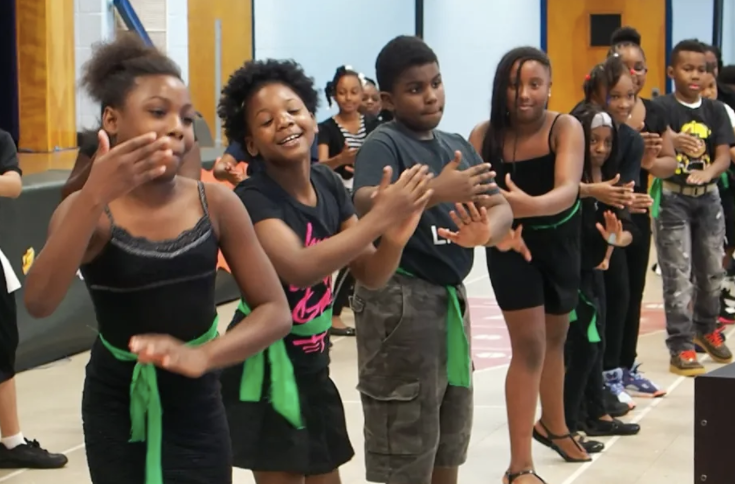When Shelby County Schools leaders launched the Summer Learning Academy program in 2017, they wanted to boost student test scores as well as offer fun summer activities. So far, the district has fallen short of its academic goals for the program, but this year it’s making some changes that have been proven to boost student learning.
And even if test scores don’t improve, the in-person, four-week program for students entering first through eighth grade helps families by offering child care, food, and extracurricular activities. The need for those services is higher this year as students begin to recover from a year of disrupted education because of the pandemic.
The program also is meant to combat “summer slide,” where students forget some reading and math skills if they don’t practice them during the break.
But the district’s analyses showed that Memphis students who attended the academy during its first two summers fared no better on annual state exams than students who did not attend. Though students showed initial improvement in math and reading at the end of the summer, the results did not last throughout the school year. (A report on the 2019 summer learning academy was not available since state tests were canceled the following spring.)
During previous Summer Learning Academies, teachers spent half the day on math and reading and the other half on extracurricular activities such as field trips, karate, and dance. This summer, most of the seven-hour day will be devoted to reading and math similar to the school year, but there will still be fun activities to keep students interested.
“The focus will be a more robust reading and math curriculum that’s pretty much going to mirror what we do in a traditional school year to really help our students,” Superintendent Joris Ray said last week. Shelby County Schools, the largest district in the state, lags behind the state average in reading and math scores.
Instead of advertising the program to all students, district officials are proactively reaching out to parents of students who scored low on diagnostic tests. For the first time, the district will provide transportation, which can be a major hurdle for families who live in poverty. There will be more incentives to encourage students to stay with the program throughout the four weeks, such as gift cards and pizza parties for students with high attendance. And unlike last summer, the program will be in person.
Providing students with transportation and other incentives to attend are some of the strategies that have brought results in summer programs in Tuscaloosa, Alabama; Boston; Dallas; Pittsburgh; and Rochester, New York. In those cities, where students, especially from low-income families, scored higher on tests after participating.
Shelby County Schools isn’t the only district making summer plans. Districts across Tennessee are creating their own summer programs in response to a state law requiring all districts statewide to offer programs to address pandemic learning loss. The law was approved during a special legislative session on education that Gov. Bill Lee convened in January.
Shelby County Schools has set aside $10.8 million in federal relief money for teacher pay and supplies for this year’s academy, quadrupling the amount for previous academies. District officials hope to enroll up to 33,000 students, or about a third of the district’s population, at 110 elementary and middle schools. The previous summer learning academies enrolled about 8,700 students at 50 sites at their height in 2019. To staff the program this year, officials estimate they will need half of the district’s teachers to sign up, or about 3,200. Last week, district officials did not have an estimate of how many teachers or students will attend.
Since the district is recruiting and paying more teachers for the program, it’s more likely that a student will be paired with a teacher they had this school year. That way, the teacher is already familiar with what the student needs to work on during the summer. Teachers staying with a group of students beyond a year has shown to be beneficial to student learning.
“The teacher knows the student’s strengths and the areas of opportunity which they come in better equipped to meet students where they are versus you have a teacher not going to your same school,” Ray said.
Despite the stress of teaching during this school year, which was mostly all online for Memphis students, fourth grade teacher Christin Amos plans to sign up to teach this summer. It’s extra cash and a more relaxed atmosphere. And if it’s anything like the new fall break academy she taught at in October, Amos said she expects students to learn a lot and have fun at the same time.
“We were still teaching … It was more of a review,” said Amos, who teaches at Whitehaven Elementary. “We wanted them to have fun. We want them to feel like they still have a break.”
The district’s tests so far this school year have been hard to compare to previous years, but district leaders have said more students are struggling with state requirements for learning. Memphis classrooms were closed all school year until early March and the school year is scheduled to end June 16.
Ray said he hopes the revamped summer learning academy will help begin to mitigate setbacks in student learning during the COVID-19 pandemic: “This gives us a grand opportunity to meet students where they are.”
This article was originally posted on Memphis Summer Academy makes changes after previous summer programs failed to raise student test scores






Be First to Comment